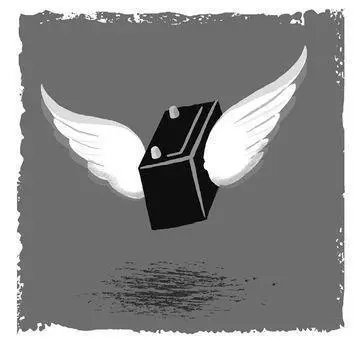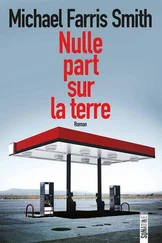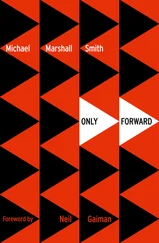So, in less elevated circles, we might toss a coin as to whether or not to go to a party, decide to go, and there meet the person whom we are to marry and spend our lives with. And if that person came, say, from New Zealand, and wanted to return, then we might find ourselves spending our life in Christchurch. Not that spending one’s lifetime in Christchurch is anything less than very satisfactory - who among us would not be happy living in a city of well-behaved people, within reach of mountains, where the civic virtues ensure courtesy and comfort and where the major problems of the world are an ocean away? But had the coin fallen the other way - as coins occasionally do - then that wholly different prospect might never have opened up and one might spend the rest of one’s days in the place where one started out. Or one might pick up a newspaper abandoned in a train by a person not well trained in those same civic virtues, open it and chance to see an advertisement for a job that one would not otherwise have seen. And that same job might take one into the path of risk, and that very risk may materialise and end one’s life prematurely. Again the act of picking up the paper has consequences unglimpsed at the time, but profound nonetheless.
Barbara knew this, and knew that how she answered would have consequences for her. It would be safest to say, ‘No, I’m not going to London,’ but that would mean that she would never know why he had asked, and it would, in addition, be a lie, and she was a truthful person. Oedipus lied; he lied all the time, she thought, but somehow lies suited him . He was a natural liar - he had a gift for meretricious speech that would be the envy of any snake-oil salesman or politician in a tight corner, a facility based on the fact that he actually believed his lies. It was a great gift, as it had immense transformative powers: if everything that one said was true, then what power one had over the world. Bad weather could be changed at a stroke to good; a downturn of fortune could simply by misdescription become something quite different. But Barbara could do none of that, not even mislead a stranger as to her destination.
So she said, ‘Yes, I am going to London, as it happens.’
The young man holding the shards of glass looked over his shoulder. ‘One sec,’ he said. ‘I need to go and put these in the bin.’
He turned round and walked over to a small rubbish bin beside the hotel’s back door. She watched him. The morning sun was in her eyes and she used a hand to shade them. She watched the young man, and did not see Oedipus at the window of the hotel dining room, looking down at her. He was watching her.
The young man dropped the glass in the bin and came back to join her. She saw his face now, for those few seconds that are crucial - so psychologists say - for the forming of an opinion one way or the other about another person.
He dusted his hands on the side of his jeans. ‘I was wondering . . .’ he began.
‘Do you need a lift up there?’
She had not intended to say this; it just came out.
He smiled. ‘Well, I wouldn’t mind. I was going to catch a train, but I’d have to walk down to the station and get a ticket . . .’ He shrugged, and smiled in a self-consciously helpless way. ‘And I’d far rather travel in a car like yours than in a train.’
‘Why not?’
‘That’s great.’
She glanced into the open-top car. ‘Have you got a suitcase? There’s not all that much room, but I can shift my things a bit.’
He had only a small bag, which he went into the hotel to retrieve. While he did that, Barbara moved the car to the side of the parking place and took stock of her situation. One should not give lifts to a stranger; that was now an elementary precaution, which anybody would be considered very unwise to ignore. The days of hitchhikers standing by the roadside seemed to be well and truly over, such was the distrust that prevailed. Everybody was a potential assailant; nobody spoke to one another for fear of being misinterpreted; nobody comforted another, put an arm around a shoulder - to do so would be to invite accusation. And yet here I am, thought Barbara, picking up a man whose name I don’t even know, allowing him to get into the car, and driving off to London. Anything could happen.
She reached for the key in the ignition. The simplest thing to do, the safest thing, would be to start the engine and drive out while he was fetching his bag. She turned the key and the engine sprang to life.
43. Terence’s Battery has a Near-death Experience
‘I can’t start it,’ said Terence Moongrove, coming back into the kitchen where his sister, Berthea Snark, was reading a newspaper.
Terence’s Morris Traveller had been towed back to the house the previous evening by the proprietor of a local garage, who, knowing the car well, had encountered it on the roadside and returned it to its home while Terence and Berthea were having dinner. He had refused payment, an act of kindness that had deeply impressed Berthea.
‘That sort of thing would never happen in London,’ she said. ‘Nobody would be that kind.’
‘Oh, I’m sure that people in London are as kind as anywhere else,’ said Terence. ‘They just don’t have the time to show it.’
‘I doubt it,’ said Berthea. ‘Too many people. It changes one’s attitude to others. Simple social psychology. Put a whole lot of rats in a cage and they fight. Put one or two in and they get along reasonably well.’
Terence looked doubtful. ‘Are you sure about that? I mean, about people? I can understand about rats - nasty, long-tailed creatures. And those teeth! Have you seen their teeth, Berthy? They’ve got long, slightly curved teeth, like that. Jolly sharp, I imagine.’ He paused. ‘But people? Do they really fight just because there’s a lot of them in the same space? Look at the Japanese. Their cities are jolly full of people. Have you seen the pictures of their train stations? They have these men who wear white gloves and push people into the carriages so that the doors can close. What a horrible job, Berthy - I wouldn’t do it for a hundred pounds. I really wouldn’t.

‘Yet the Japanese don’t fight with one another,’ Terence went on. ‘They behave terribly well. Japanese cities are not like our cities at night - with all that shouting and heaven knows what. And—’
‘That’s alcohol,’ Berthea interjected. ‘And the Japanese have manners. They’re very particular about how to behave and that means that everybody gets on very well with one another even in a confined space. Manners, Terence. Something we’re losing sight of. We laugh at people who bow to one another but the bow is an act of respect, and respect leads to considerate behaviour. We could learn a lot from the Japanese. In particular, we could learn how to live harmoniously in crowded spaces. We could learn about territory.’
Terence thought about this. ‘We must rise above the territorial,’ he said. ‘Obviously our territory is finite, and we will find ourselves contesting it. But if we project ourselves onto another, altogether higher plane, then physical territory will matter much less.’
Berthea pursed her lips. ‘Not everyone,’ she said, ‘can exist on a higher plane. I, for example—’
‘But you could!’ interrupted Terence. ‘You really could, Berthy! You need to try, that’s all.’
Berthea sighed. ‘What you describe as a higher plane, Terence, is probably just a slightly altered mental state. A dissociative state, I’d say. Anybody can experience that.’
Terence looked out of the window. ‘You can’t say that. You’re just reducing it to a matter of brain chemistry. It’s more than that.’
Читать дальше











